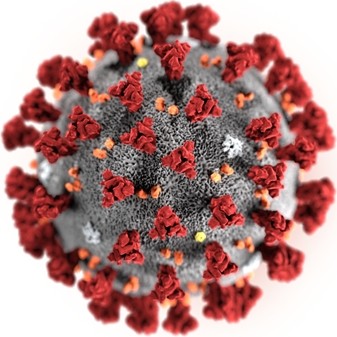The problem of modeling the rate of COVID-19 pandemic expansion in the world and in selected countries becomes extremely important from the point of view of many aspects. These are not only the simple questions related to: how many cases there may be the next day or when is the final date when we will be forced to deal with various restrictions, but also much more important issues, such as management of crisis situations with limited access to information. It is possible to build new or use existing more or less complex mathematical models, referring to other events of this type in human history, but it is worth to emphasize that we live in a completely different world, where the transmission of new cases can take place in an extremely short time and our networking makes possible that the so far known models not necessarily work. Regardless of this context, we can try to look for models that will play a supporting role and will be simple enough to give approximate answers to some simple questions at the initial stage of development of this type of threat. We encourage you to follow the work and discussions that take place on websites and social profiles, in particular we recommend the FB website of the Department of Complex Systems employee from the Faculty of Electrical and Computer Engineering, Dominik Strzałka, who for over two weeks regularly publishes short analyzes using simple models referred to non-extensive statistics and the theory of complex systems (link https://www.facebook.com/StrzalkaDominik).
Local media also informs about the involvement of our colleague, e.g. Radio Rzeszów https://www.radio.rzeszow.pl/audycje/30591
Links:
- https://ziemiadebicka.pl/dr-dominik-strzalka-modele-rozwoju-pandemii-covid-19-inzynierskim-okiem/?fbclid=IwAR09mC7xCnveTPWWGvbGbvS2CzXmFpDlZKEKPxSC9e9xLzEoSBnNDsOmgCo
- https://rzeszow.wyborcza.pl/rzeszow/7,34962,25859403,rzeszowski-inzynier-oblicza-jak-bedzie-rozwijac-sie-epidemia.html
- https://www.komputerswiat.pl/aktualnosci/nauka-i-technika/jak-rozwinie-sie-pandemia-koronawirusa-polski-naukowiec-wyjasnia-na-facebooku/ttmw49z








